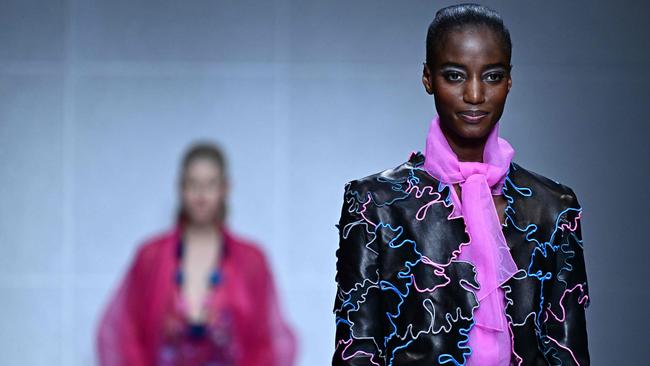Cettire boss talks up growth, avoids tough questions
The luxury fashion online retailer’s boss focused on its growth prospects and how it differs from Farfetch, while avoiding controversy at the Macquarie Conference.

Dean Mintz, chief executive of online luxury goods player Cettire, has told investors at the Macquarie Australia Conference in Sydney the company holds robust growth prospects and is different from Farfetch, the better-known Paris-headquartered luxury retailer that once was valued at $US24bn and sold in December on the brink of administration.
“Farfetch has done a lot of things right,” Mr Mintz said. “They had specific challenges they had to deal with to do with the cost base that they had. They have demonstrated there is a large opportunity from a demand and supply perspective. Our proposition is resonating with both demand and supply.”
Mr Mintz said his company had only about 70 staff, whereas its competitor had thousands. It was a capital-light business with most of its cost base “variable”, including no inventory. Instead, it operates by selling products from thousands of suppliers and acting as the intermediary between brands and customers.
It’s a model shareholders have loved. The company’s shares have risen 530 per cent since it listed on the Australian Securities Exchange in 2020 and in February it smashed its half-year earnings out of the park.
Cettire’s revenue from ordinary operations increased more than 17-fold in the past three years and the company is profitable to the extent that it hinted once more at the Macquarie conference that a capital management program – presumably in the form of a dividend – might soon be on the table.
But despite its positive free cashflow, rumours in the market abound about how the company makes money and keeps its suppliers happy while running a business model of selling designer goods at an often large discount to the current retail price.
A prominent blogger known as Taxloss has questioned how it sells authentic goods at a discount and while paying all appropriate duties without being cut off by the suppliers. Despite wide media coverage of those questions, none of the pre-submitted online questions at the conference included any topic along those lines.
Instead, the reclusive Mr Mintz focused on the company’s strong growth story, with $2bn in available inventory, double that of a year ago, and continued strong cashflow generation.
“The US is our largest market, with 60 per cent … we are still seeing huge growth in that market,” he said. “The luxury supply chain is extremely large.”
Mr Mintz, who has sold $362m worth of shares in the company recently, is right about that.
Technology and low costs give him the model to sell luxury products for less. “There is only one other competitor of any scale operation with the same business model,” he said.
The wealthy founder of Cettire may well be right, and certainly investors have done well in the past four years, but it’s a strange public relations strategy to avoid addressing the elephant in the room.





To join the conversation, please log in. Don't have an account? Register
Join the conversation, you are commenting as Logout